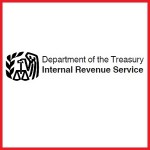
Department of the Treasury Internal Revenue Service
The IRS announced on February 15th to tax preparation professionals that they will not reject a tax returns because the tax payer has not indicated whether they had health insurance coverage for 2016. Under the ACA, if a tax payer has not had health insurance for most of 2016, they are subject to the Shared Responsibility Payment also referred to as the Individual Mandate.
Tax payers indicate on line 61 of the 1040 whether they had health insurance or not for the year. Tax payers can file Form 8965 Health Coverage Exemptions to avoid the Shared Responsibility Payment if they have a documented exemption from the requirement to have ACA compliant health insurance. The IRS announcement does not remove the potential for tax payers from being contacted in the future about paying the Shared Responsibility Payment. But at this point, they won’t reject 2016 tax returns from professional tax prepares if ACA compliant health coverage is not indicated.
ACA Information Center for Tax Professionals
https://www.irs.gov/tax-professionals/aca-information-center-for-tax-professionals
ACA Executive Order and Current Tax Filing Season
The IRS is currently reviewing the Jan. 20, 2017, executive order to determine the implications. Taxpayers should continue to file their tax returns as they normally would.
The instruction for individual taxpayers involving the Affordable Care Act has been to indicate on their Form 1040 filing whether they had health insurance, an exemption from coverage or made a shared responsibility payment. In recent years, tax returns silent in that regard were still processed. This year, the IRS put in place system changes that would reject tax returns during processing in instances where the taxpayer didn’t provide that information.
The recent executive order directed federal agencies to exercise authority and discretion available to them to reduce potential burden. Consistent with that, the IRS has decided to make changes that would continue to allow electronic and paper returns to be accepted for processing in instances where a taxpayer doesn’t indicate their coverage status.
However, legislative provisions of the ACA law are still in force until changed by the Congress, and taxpayers remain required to follow the law and pay what they may owe.
Processing silent returns means that taxpayer returns are not systemically rejected by the IRS at the time of filing, allowing the returns to be processed and minimizing burden on taxpayers, including those expecting a refund. When the IRS has questions about a tax return, taxpayers may receive follow-up questions and correspondence at a future date, after the filing process is completed. This is similar to how we handled this in previous years, and this reflects the normal IRS post-filing compliance procedures that we follow.
Additional sources of information regarding this change to IRS enforcement of ACA regulations can be found at:
Drake Software Update provider of professional tax preparation software update http://kb.drakesoftware.com/Site/Print14579.aspx
Reason.com